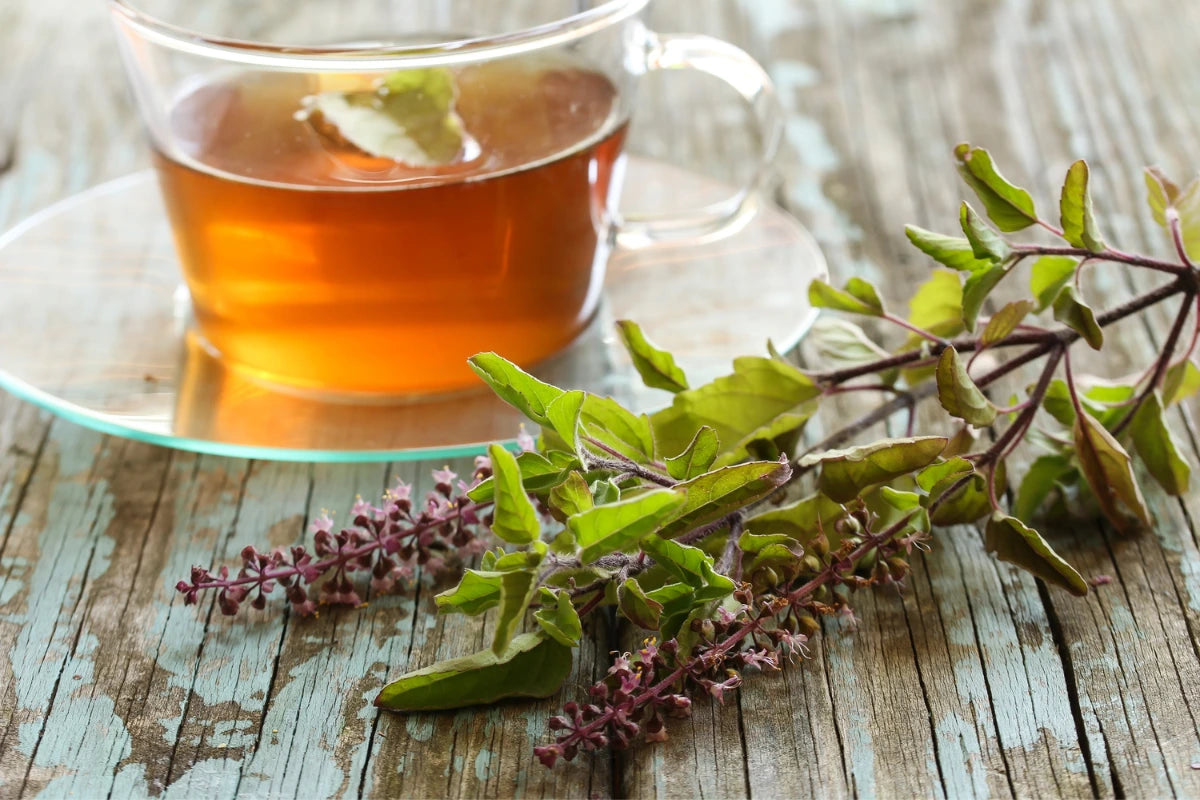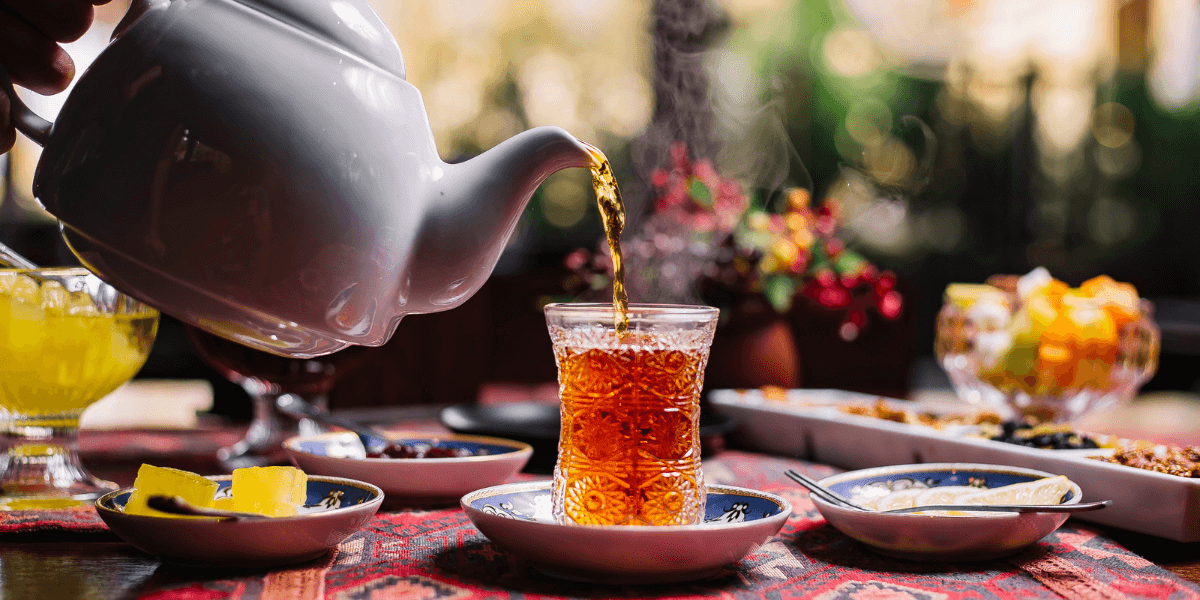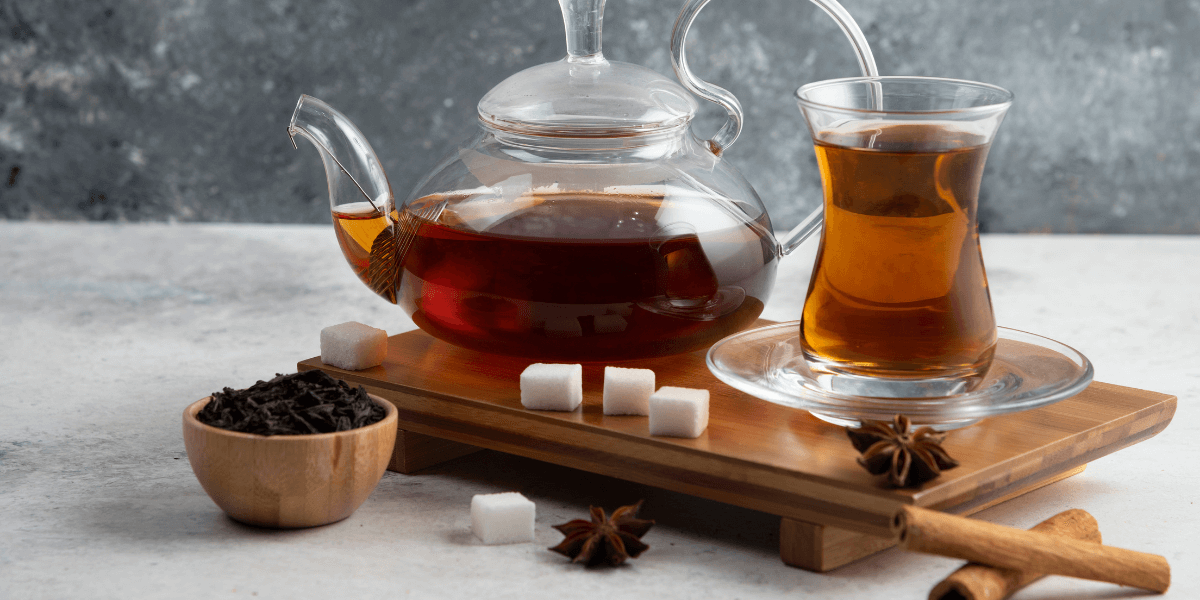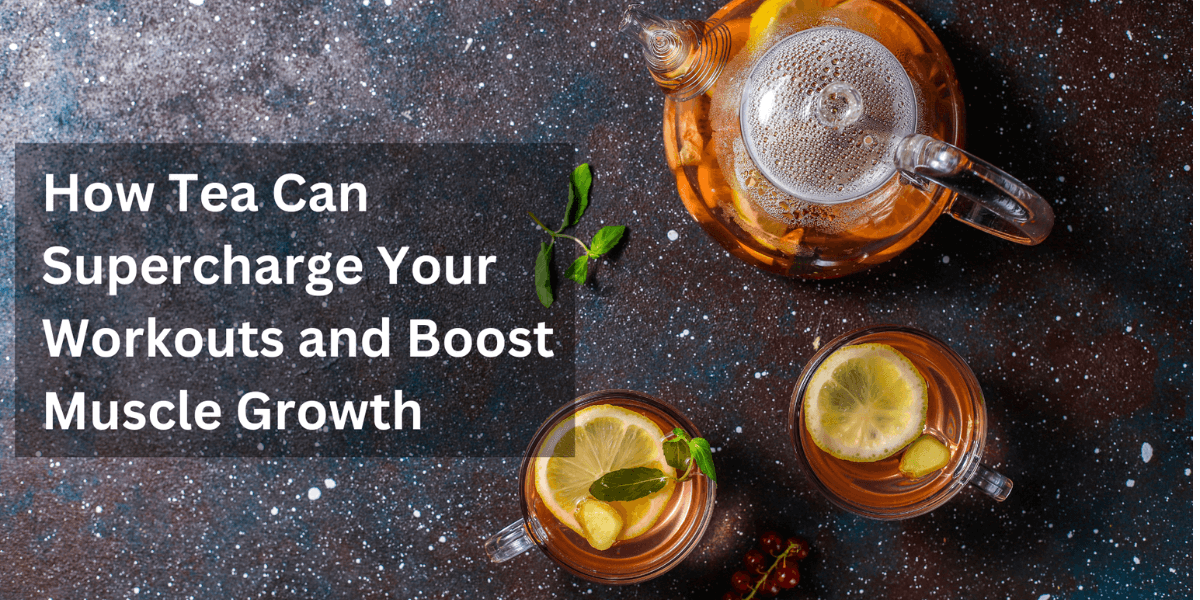Organic tea has become increasingly popular in recent years, and for good reason. Not only does it offer a wide range of health benefits, but it is also produced in an environmentally friendly way. If you are curious about organic tea and its benefits, you have come to the right place. In this article, we will explore everything you need to know about organic tea – from its definition to how to brew it, the different types available, and the advantages it has over conventional tea. We will also share tips on what to look for when buying organic tea and answer some frequently asked questions.
1. What is Organic Tea?
Defining Organic Tea
Organic tea is made from tea plants that are grown without the use of synthetic pesticides, fertilizers, or other harmful chemicals. The tea plants are cultivated using natural methods, such as composting and crop rotation. Organic tea is often considered healthier and more environmentally friendly compared to conventionally grown tea.
Organic Tea Certification
Organic tea is certified by various organizations, such as the United States Department of Agriculture (USDA) and the Soil Association. These organizations have strict criteria for certification, including regular inspections of tea gardens and processing facilities. Once certified, organic tea products can display a label or seal indicating their organic status.
2. The Benefits of Organic Tea
General Health Benefits of Tea
Tea, in general, is known to have many health benefits. It is rich in antioxidants, which are beneficial for fighting free radicals in the body. Drinking tea may also reduce the risk of developing chronic diseases, such as cancer, diabetes, and heart disease. Additionally, tea contains caffeine, which can boost energy levels and mental clarity.
Specific Benefits of Organic Tea
Organic tea has the added benefit of being free from harmful chemicals and pesticides. By drinking organic tea, you can be sure that you are not consuming toxins that may be harmful to your health. Additionally, organic tea is often grown in a more sustainable manner, which can benefit the environment and local communities.
3. How to Brew Organic Tea
Preparation of Water
When brewing organic tea, it is important to use high-quality water that is free from impurities. You can use filtered or bottled water if necessary. Be sure to bring the water to the appropriate temperature for the type of tea you are brewing.
Tea Infusers and Steeping Time
Tea infusers, such as teapots or tea balls, can be used to steep loose-leaf organic tea. Generally, one teaspoon of tea per cup of water is sufficient. Steeping time can vary based on the type of tea, but typically ranges from two to five minutes. Be sure to follow the recommended steeping time for the tea you are brewing to ensure the best flavor and health benefits.
4. Types of Organic Tea
Green Tea
Green tea is made from unoxidized tea leaves and is high in antioxidants and nutrients. It may also help to boost metabolism and reduce the risk of developing certain diseases.
Black Tea
Black tea is made from fully oxidized tea leaves and is often consumed with milk or sugar. It is rich in antioxidants and may also help to improve heart health.
Oolong Tea
Oolong tea is partially oxidized and has a unique flavor profile. It may provide benefits such as improved digestion and stress relief.
White Tea
White tea is made from young tea leaves and buds and is the least processed type of tea. It is high in antioxidants and may also improve skin health.
Herbal Tea
Herbal tea is not made from tea leaves but rather from a variety of herbs, spices, and other plants. It can provide many health benefits, depending on the ingredients used. Popular types of herbal tea include chamomile, peppermint, and ginger tea.
5. Organic Tea vs Conventional Tea
When it comes to tea, you have two options: organic or conventional. The main difference between the two lies in the growing and processing methods. Organic tea is grown without using synthetic fertilizers or pesticides, while conventional tea is grown using these chemicals. Organic tea is also processed without the use of artificial additives or flavorings, whereas conventional tea may contain these.
Differences in Growing and Processing
Organic tea is grown using sustainable farming methods that prioritize the health of the soil, the plants, and the environment. This includes practices such as composting, crop rotation, and natural pest control. Organic tea leaves are also hand-picked and processed using traditional methods, which means they are not exposed to chemicals or artificial flavors.
Conventional tea, on the other hand, is often grown using monoculture farming methods, which means large amounts of a single crop are grown in the same area year after year. This can lead to soil depletion and increased pesticide use. Conventional tea leaves are harvested using machines, which can damage the leaves and affect the flavor. They are also often processed using artificial additives and flavors.
Chemical Residues and Environmental Impact
One of the most significant differences between organic and conventional tea is the presence of chemical residues. Conventional tea may contain trace amounts of pesticides and synthetic fertilizers, which can be harmful to human health. Organic tea, on the other hand, is free of these chemical residues, which means it is safer to consume.
Organic tea also has a more positive environmental impact than conventional tea. Organic farming practices prioritize soil health, which can help reduce erosion and conserve water. Additionally, organic farming methods can help promote biodiversity, as they support a variety of plant and animal species.
6. Buying Organic Tea: What to Look For
If you're interested in buying organic tea, there are a few things to keep in mind. First, look for organic tea brands that are certified by a reputable organization, such as the USDA or the Soil Association. These certifications ensure that the tea has been grown and processed according to organic standards.
Organic Tea Brands and Labels
Some popular organic tea brands include Numi, Traditional Medicinals, and Pukka. When shopping for organic tea, look for labels that indicate the tea is certified organic, such as the USDA Organic label or the Soil Association Organic label.
Organic Tea Price Comparison
It's worth noting that organic tea may be more expensive than conventional tea. This is because organic farming practices are often more labor-intensive and require more resources. However, the price difference is not always significant, and many people find the additional cost worth it for the health and environmental benefits.
7. Frequently Asked Questions About Organic Tea
Is Organic Tea More Expensive?
Yes, organic tea is often more expensive than conventional tea. This is because organic farming practices require more resources and can be more labor-intensive.
Does Organic Tea Taste Different?
Organic tea may taste slightly different than conventional tea due to the differences in growing and processing methods. Some people find that organic tea has a more natural and pure taste.
Are All Organic Teas the Same?
No, not all organic teas are the same. Different types of tea can have different growing and processing requirements, which can affect the final product. It's important to read labels and choose a tea that meets your preferences and needs.In conclusion, organic tea is a great option for those looking to prioritize their health and the environment. With its numerous health benefits, delicious flavors, and sustainable production methods, there is no reason not to give organic tea a try. Start exploring the world of organic tea today and enjoy a cup of goodness.
Frequently Asked Questions About Organic Tea
Is organic tea more expensive than conventional tea?
Yes, organic tea is often more expensive than conventional tea due to its higher production costs. However, the price may vary depending on the brand and type of tea you choose.
Does organic tea taste different from conventional tea?
Yes, organic tea can taste different from conventional tea due to the different farming and processing methods. Organic tea is often described as having a smoother taste and a more complex flavor profile.
Are all organic teas the same?
No, there are many different types of organic tea, each with its own unique flavor and health benefits. Some common types of organic tea include green tea, black tea, white tea, oolong tea, and herbal tea.
Can I buy organic tea at my local grocery store?
Yes, many grocery stores carry organic tea in their health food sections. However, if you are looking for a wider variety of organic tea options, you may want to check out specialty tea shops or online retailers.





